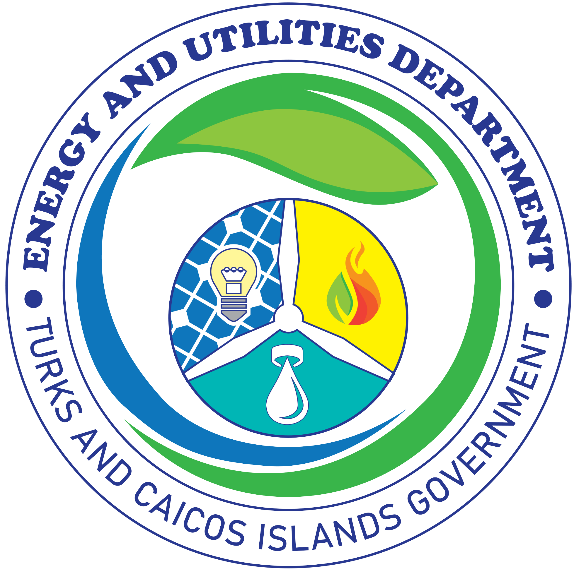The Turks and Caicos Islands (TCI) are taking a significant step towards a greener, cleaner, and more sustainable future with the introduction of the groundbreaking Renewable Energy and Resource Planning Bill 2023. After an extensive period of public consultation, the government is unveiling a comprehensive Legislation that is aimed at transforming the energy landscape, fostering energy independence, promoting economic growth, and preserving the natural beauty of these islands.
The new Renewable Energy and Resource Planning Bill 2023 encompasses a wide range of objectives, all designed to contribute to a brighter future for the Turks and Caicos Islands:
Transition to Clean Energy Sources: The Legislation aims to achieve a substantial reduction in the reliance on fossil fuels by increasing the share of renewable energy in the national energy mix. The goal is to reach 33% of energy supplies from renewable sources by the year 2040.
Renewable Energy Infrastructure: The Legislation encourages the development and deployment of renewable energy technologies, such as solar, wind, and ocean energy, through incentives, subsidies, and regulatory support. It also emphasizes the importance of grid integration and energy storage solutions.
Investment and Financing: The government seeks to attract private sector investments in renewable energy projects through tax incentives, grants, and other financial mechanisms. Partnerships with international organizations and donor agencies will be explored to secure funding for renewable energy initiatives.
Job Creation and Economic Growth: The government aims to stimulate the growth of a sustainable renewable energy industry, creating jobs and driving economic development. It will also support research and development activities to foster innovation and competitiveness in the renewable energy sector.
Environmental Conservation: Mitigating the environmental impact of energy production is a key priority, with a focus on reducing greenhouse gas emissions and minimizing damage to ecosystems. Responsible siting and development of renewable energy projects will be emphasized.
Energy Resilience: Enhancing the resilience of the energy infrastructure to withstand natural disasters and climate change-related challenges is crucial. Microgrid solutions and distributed energy resources will be explored to ensure critical infrastructure has a continuous power supply in the event of a Natural Disaster.
Policy and Regulatory Framework: The Legislation includes the development and updating of policies, regulations, and standards to support the growth of renewable energy while removing barriers to its adoption. Transparent and streamlined permitting processes for renewable energy projects will be ensured.
The Renewable Energy Bill’s overarching goal is to reduce the reliance on fossil fuels, increase energy diversity, enhance energy security, and support the transition to a sustainable energy future that will benefit the environment and the residents of the Turks and Caicos Islands.
A key component of this Legislation is the introduction of a competitive Tendering Process, run by the Energy and Utilities Department, which will ensure that the least-cost bids for renewable energy projects are chosen. This approach aims to promote energy affordability and reduce dependence on fossil fuels, while also diversifying energy sources for reliability and security.
Renewable energy producers will be required to obtain licenses and pay a small levy to support public interest renewable energy initiatives and research. This step ensures fairness and promotes the growth of renewable energy systems on the islands.
Additionally, the legislation introduces a Net-Billing Program that allows building and business owners to install renewable energy systems to meet some or all of their energy needs. Surplus electricity can be sold back to the grid, with payments linked to the Monthly Fuel Factor.
The Turks and Caicos Energy and Utilities Commissioner will play a central role in overseeing and regulating these measures, ensuring the safe design and operation of renewable energy systems, licensing compliance, and setting performance standards for timely grid connections.
The Energy and Utilities Commissioner, Engineer Delano R. Arthur states “Powering the future with renewable energy is not just a goal; it's our responsibility. We can no longer sit in idle, but together, we must light the way toward a sustainable and brighter tomorrow.”
Hon. Otis C. Morris, The Minister for Home Affairs, Public Safety and Utilities says “Effective energy regulation is the compass guiding our journey towards a cleaner, more sustainable, and energy-secure future. Our commitment to smart, responsible policies shapes the path to a brighter tomorrow.”
The government is committed to integrating renewable energy policies with broader energy policies to ensure that the development of non-renewable energy facilities is consistent with the transition to cleaner and greener energy systems.
The Renewable Energy and Resource Planning Bill 2023 represents a significant step forward in the Turks and Caicos Islands' journey towards a sustainable, environmentally friendly, and economically vibrant future. It is a testament to the government's commitment to securing a cleaner, more affordable, and more resilient energy landscape for all residents and the environment.
For more information about the Renewable Energy Legislation and its components, please refer to the full RE Bill <Click Here> or you can contact the Energy and Utilities Commissioner, Engr. Delano R. Arthur at
